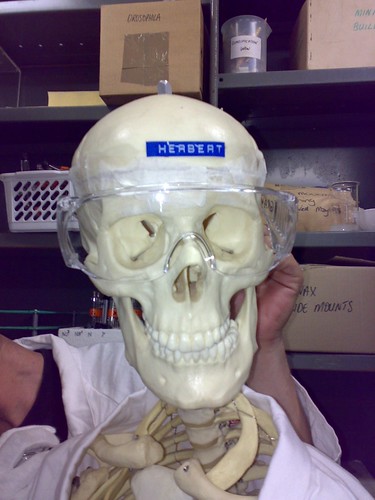Kelly Seaton continues her series on finding a postdoc in the sciences. Previously: One Postdoc’s Journey, Where Should I Begin?

Once you have decided to pursue a postdoc position and have a reasonable idea what you would like to study or where you want to live, the next step is to find a position that is a good fit for you. In this post I will give a few suggestions on what to think about in terms of a “postdoc friendly” lab and how to start looking for specific positions.
Looking for places that are “postdoc friendly”
While life post-graduation does offer more freedom and flexibility than graduate school, many challenges still remain for postdocs. Postdocs are in a transition period between student status and faculty or “real job” status, as it is essentially a time of extended professional training. There are many important life choices to make as well —buying a house, finishing paying off student loans, and whether or not to start a family. My suggestion is to look for “postdoc friendly” institutions —places that take into consideration the unique challenges facing postdocs, and that offer postdocs resources to help enhance their personal and professional lives.
A great resource for issues concerning postdocs is the National Postdoctoral Association (NPA). Their website contains several helpful links to resources for postdocs, and they help to advocate and drive policy-making for postdocs across the country. Look for universities, government or industry positions that have adopted these policies for their postdocs, and that take into account the unique challenges facing postdocs.
An important consideration for some post-graduation is the timing of starting a family. Many postdocs do successfully start families during their position, but be sure to review the prospective institution’s policy on leave for postdocs (particularly if postdocs are not considered university employees). The NPA recently developed some recommendations for maternity leave as a postdoc, which is very helpful to consider if you are thinking about starting a family during your training.
Consider universities or government positions that have an Office of Postdoctoral Affairs or a Postdoctoral Association. Often, institutions that have these offices have put some thought into postdoc employment, and can help provide both professional and personal resources as needed. Particularly look for places that clearly delineate policies on matters such as time off for postdocs, employment classification (are you a university employee or not?) health benefits, dispute resolution, etc. This can be a huge advantage —otherwise you may be dependent on the lab you land in, and it will feel more like graduate school than extended professional training.
Finding a specific postdoc position
At the end of the series, I will put together a resource page with links and ideas on how to find postdoc postions. In the meantime, here are some places to get started.
- There are several locations where postdoc postions are advertised, including including Science (Careers portal, Postdoc listings) and Nature (Careers portal, Postdoc listings), or through advertisements in national societies.
- Some universities do not consider postdocs as employees/staff and therefore do not post those positions on a Human Resources website. However, if a university has an Office of Postdoctoral Affairs, contact them or look at their website to see if they have postdoc listings.
- Contacting someone personally may also be a good way to find a position. You can look through the NIH RePORTER website to find professors with NIH funded research in a subject area or institution of interest, and it also lists the duration of the grant funding.
- It is definitely ok to e-mail professors and state that you are interested in their work and inquire if they have any postdoc positions open. Make sure, however, to attach a CV, and clearly indicate that you are familiar with their research. Keep your e-mail short and to the point, and emphasize how their research fits with your current skills and future interest. If you can find a personal connection, that is even better (i.e. through LinkedIn, your advisor, or if you can find alumni from your school that have worked with them).
Next up: Tips for making it through the interview process
Do you have any questions for Kelly about finding the right position? Are there other resources that you’ve found helpful in your search?
Kelly Seaton lives in Durham, North Carolina (go Duke!), where she is an HIV vaccine researcher. She is a graduate of Messiah College and Penn State University-Hershey. Her cross-cultural experience includes studying abroad in Barcelona, Spain, as well as traveling to Haiti and South Africa. She loves the movies Emma and The Shawshank Redemption. Outside of work, she loves hanging with friends, playing volleyball, and any and all outdoors. Her post Finding a Postdoc in the Sciences: Nailing the Interview is the most visited ESN blog post.

Leave a Reply